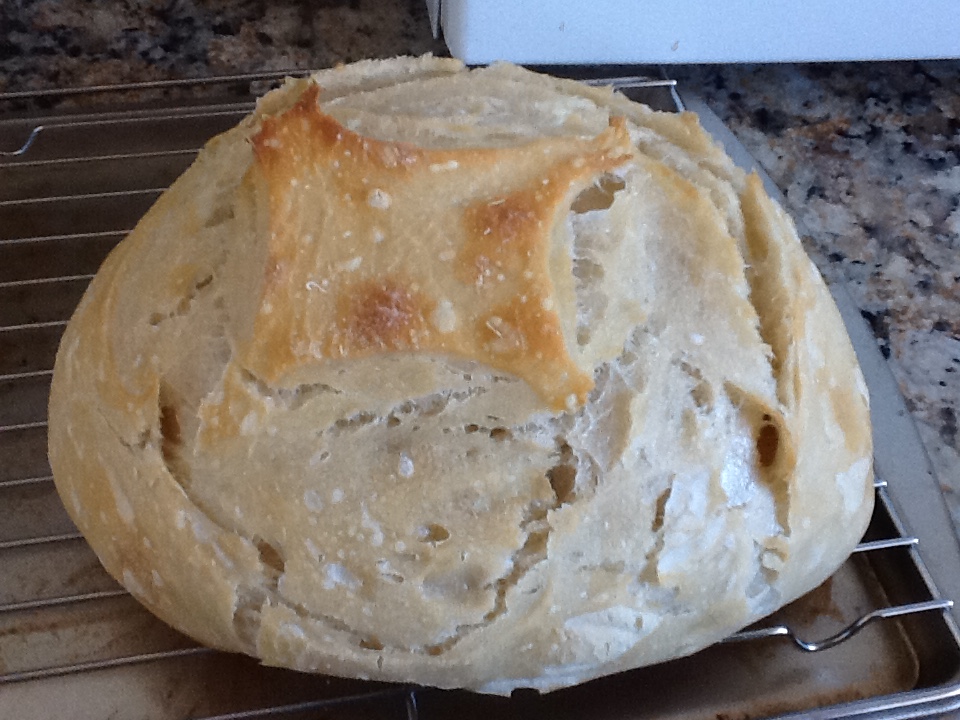brewbama
Well-Known Member
- Joined
- Sep 20, 2013
- Messages
- 3,802
- Reaction score
- 2,829

Use your favorite no knead recipe and add a quarter to a half cup of grain when you're mixing.
I guess the trick there is I have no favorite no knead recipe, as I've never tried it yet.
I guess the trick there is I have no favorite no knead recipe, as I've never tried it yet.












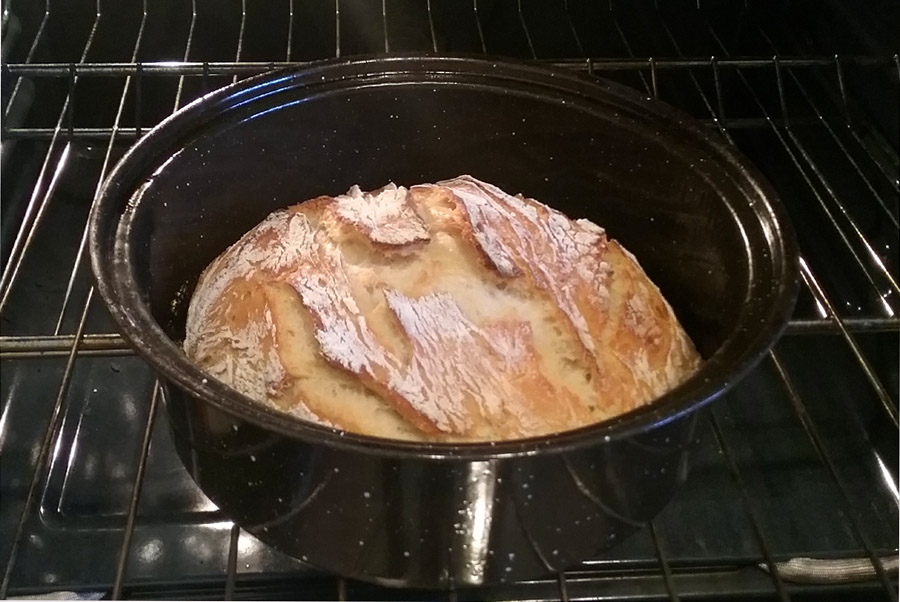

I like a simple, no-knead crusty bread. This is my recipe:
3 cups flour, 2 tsp. salt, 1/2 tsp. bread yeast. Mix dry ingredients together in bowl, add 1-1/2 cups slightly warm water, mix in well. Cover bowl and let it sit on the counter 8-10 hours to rise. Pre-heat oven to 450F. With some flour, form dough into a ball and drop into a small, greased, round pot or dutch oven. Cover and set on middle rack in oven for 30 minutes. Remove cover and continue to bake an additional 15-20 minutes, until the top is a deep golden brown. Remove from oven and drop out of dutch oven. Let it cool a while and serve. Easy-peasy.
My boule today:
So do you not let it rise a second time once it's in the dutch oven before you bake it?
Nope, just drop it in, cover and put it in the oven. I forgot to mention above...it's good to preheat the dutch oven prior to putting the dough in. Helps make it more crusty on the sides and bottom.
A buddy of mine and I just made some bread with spent grain from a porter I just did and it came out great!
Wondering if anyone has ever used beer yeast in the bread as well?
If there is a thread on this somewhere please point me to it.
Cheers,
Scott
A buddy of mine and I just made some bread with spent grain from a porter I just did and it came out great!
Wondering if anyone has ever used beer yeast in the bread as well?
If there is a thread on this somewhere please point me to it.
Cheers,
Scott
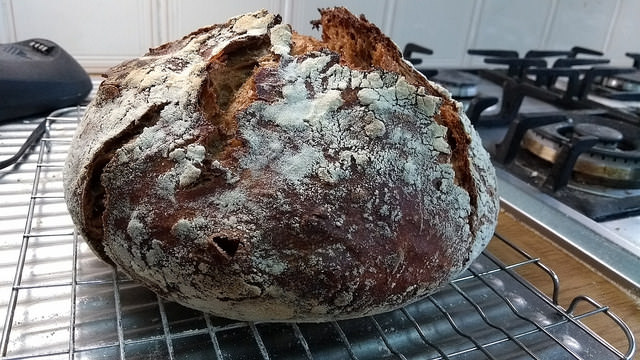
No knead sourdough loaf using FWP Mathews Cotswold Crunch flour - not used it before, gives a granary bread with lots of malted grain flavour. I'd probably cut it back to 50% next time, it's a bit much for me. Also I forgot to score the top when I put it in the oven . Doh!

700g FWP mathews cotswold crunch http://www.fwpmatthews.co.uk/product/cotswold-crunch-flour/
450g water
15g salt
100g sourdough starter - this hadn't been fed and was just out of my fridge so I added a pinch of IDY too
12 hours in the mixing bowl, folded a couple of times and shaped then left to rise for another 3 hours. Put in preheated cast iron casserole dish @ 220c for 30 mins, removed lid and baked for another 15min @ 180c
Wondering if anyone has ever used beer yeast in the bread as well?
I'm new to breadmaking, and have baked only a few loaves so far. One question: Does anyone add a little DME to the dough mix? I've heard of it being done, but I'm not finding much useful info about that online. How much DME do you add and what does it do for the bread?
I'm new to breadmaking, and have baked only a few loaves so far. One question: Does anyone add a little DME to the dough mix? I've heard of it being done, but I'm not finding much useful info about that online. How much DME do you add and what does it do for the bread?
I realize there is also a diastatic malt powder, a whole different animal. I'm inquiring about DME.
I'm new to breadmaking, and have baked only a few loaves so far. One question: Does anyone add a little DME to the dough mix? I've heard of it being done, but I'm not finding much useful info about that online. How much DME do you add and what does it do for the bread?
I realize there is also a diastatic malt powder, a whole different animal. I'm inquiring about DME.
Thank you!
Don't know if I can get the Cotswold Crunch here in the US, but if not I'll try to find a substitute.
You might try using a coffee/spice grinder to mill some flaked wheat and maybe even some 2 row (malt flour??). Just to add a little extra.
Keep the % low if you are added malted wheat. Not sure how malted barley will do. But I added some malted wheat to my whole wheat recipe. I used 10% ground with the wheat berries for flour. The first time the center was very doughy. So next time I baked for an extra 30 minutes on top of the normal 50 and checked the center temp, it was 202. Still doughy in the center.
Have not tried since. Seems you would have to get low enough that it would not really add much considering the flavor of whole wheat.
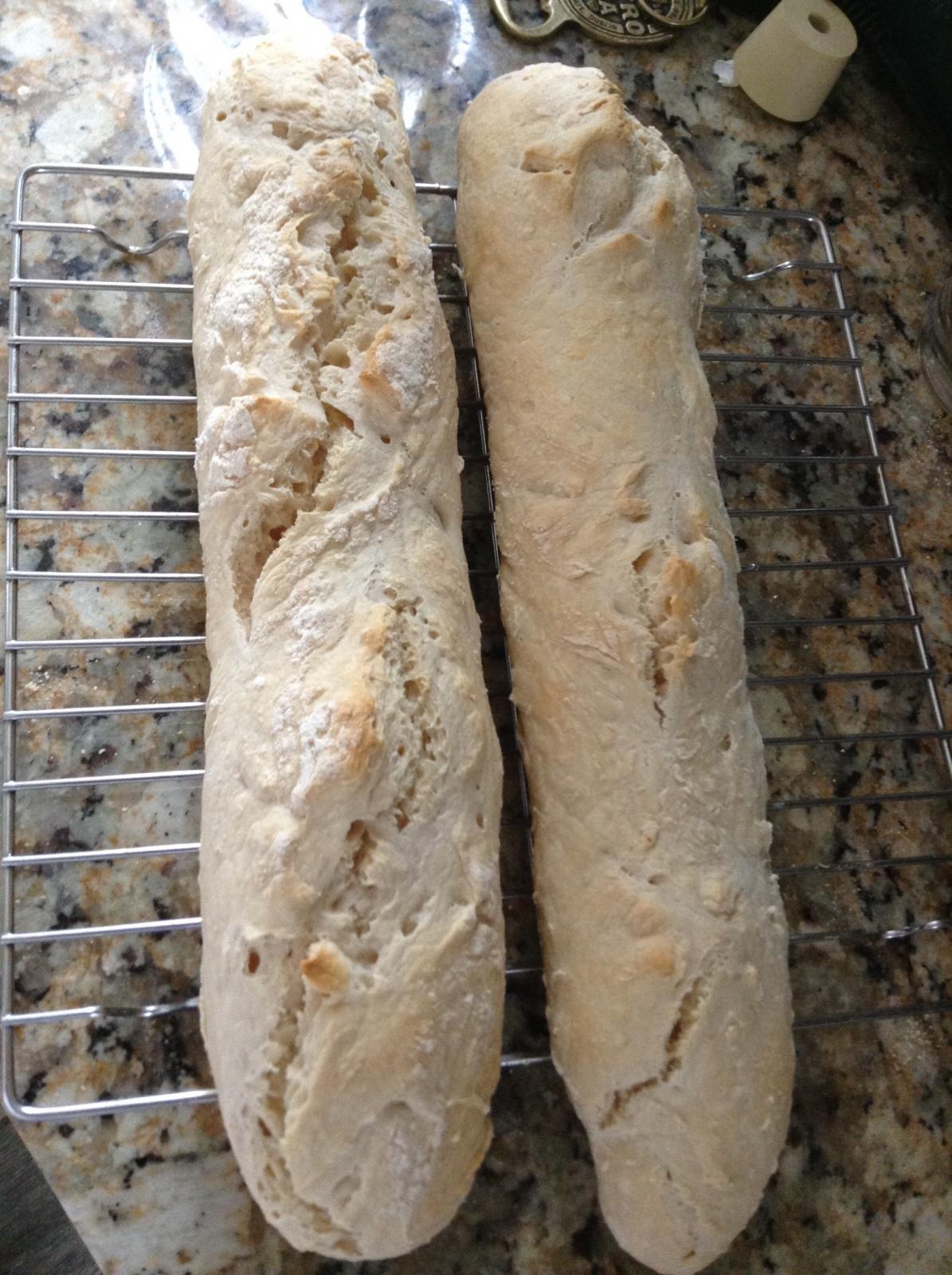
Woke up the starter, and checked out my new triple loaf pan.
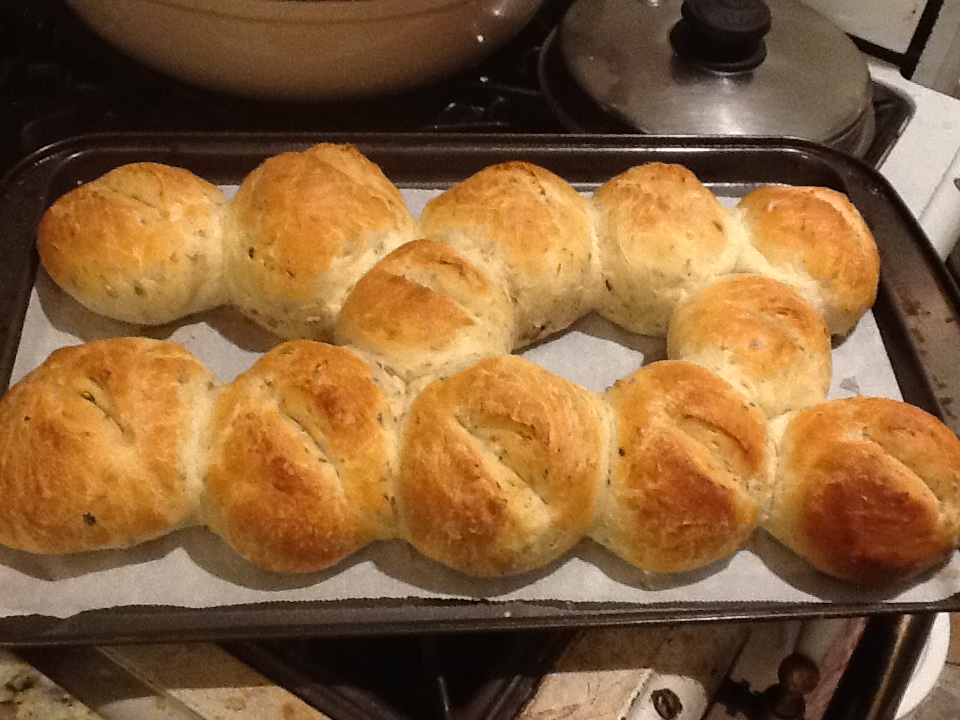
So I've heard of making beer with bread yeast, but has anyone tried it the other way around?
I'm tasked with making bread for today, and I realized I have maybe a third of the yeast I need for my bread recipe. I do have packets of dry S-04 and S-05 beer yeast, plus some 1056 in the fridge from a batch I harvested. Can I use those to supplement the bread yeast and do I need to make any changes?
